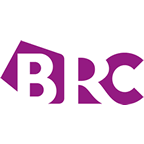LONDON, 2015-12-10 — /EPR Retail News/ — UK consumers are set to lose out as a result of today’s decision on fees for consumer debit card payments. The Interchange Fee Regulation, a piece of EU legislation which comes into effect in the UK today, will reduce the hidden ‘interchange’ fees levied by banks on retailers every time a consumer pays by card. Yet the UK implementation may see debit card charges rise for some retailers. Possible savings will be lost and the UK consumer will not see the full potential benefits from lower prices or enhanced services.
The BRC has campaigned for many years against the excessive and hidden credit card fees (amounting to £1 billion per year) imposed on retailers and consumers by the card schemes and banks. The new rules in the UK will reduce credit card fees to 0.3%.
Why the debit cap option is the wrong one
– The EU Regulation gives several options for debit card fee caps. The Treasury has chosen a cap of 0.2% of the value of the transaction, calculated as a ‘weighted average’ of the annual transaction value.
– This means that some retailers taking debit payments may pay more than they pay now. Choosing this option will effectively reverse the intention of the EU law, which is to reduce fees on card payments.
– This could reduce any benefit from caps on credit cards: consumers therefore would see little benefit.
– It is not transparent: retailers will not be able to judge whether or not the fees they have been charged comply with the law. They won’t know, until after the fact, if they have been overcharged.
– The weighted average requires extensive reporting by card schemes and highly complex calculations. This means extra administration for the Payments Regulator, leading to unnecessary costs.
What would be a better option for the UK?
– The UK should choose one of the other options for debit caps allowed by the EU Regulation and set a cap at 0.2% with a maximum fixed cap of 3.5 pence (5 eurocents).
– This would allow retailers to benefit fully from the card fee caps and so offer UK consumers even more competitive prices and enhanced services.
– It would give certainty and clarity for all payment users.
– To help the UK compete in Europe, our payments market needs to keep pace with other countries. Ireland, the Netherlands, Belgium and Denmark have set caps lower than 0.2%.
Helen Dickinson BRC Chief Executive said: “The implementation of card fee caps is long awaited and welcome but the choice of a ‘weighted average’ for debit card fee cap is not the best approach. It will deprive consumers of improved services or even more competitive prices, as UK retailers are prevented from realising the full potential savings from this long-awaited legislation. The BRC will work together with the Regulator on their current study and we trust they will be able to recommend a lower debit card cap as soon as possible.”
Notes to editor:
– The Payment Systems Regulator (PSR) is conducting a full study on card payment fees in the UK and is due to report in spring 2016. BRC members will contribute fully to this study to set out the full impact of the weighted average choice and provide details of all other costs associated with card payments.
ENDS
For media enquiries please contact Laura Blumenthal 020 7854 8924 laura.blumenthal@brc.org.uk
SOURCE: British Retail Consortium
